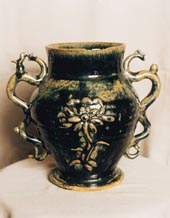| Legole.Com Discover china. Explore the beauty and wonder of the land, people, and culture of China. |
 |
|
|
 |
| |
 The Yuan period was one in which there was freedom of travel both to and from the empire. Such travel encompassed both western Asia and Europe. The period also was one in which foreigners were encouraged to settle in China, notably western Asians. A heavy reliance by the Mongolian rulers upon foreign advisers diverted some of the animosity of the Chinese away from them to the in-comers. The Yuan period was one in which there was freedom of travel both to and from the empire. Such travel encompassed both western Asia and Europe. The period also was one in which foreigners were encouraged to settle in China, notably western Asians. A heavy reliance by the Mongolian rulers upon foreign advisers diverted some of the animosity of the Chinese away from them to the in-comers.
Muslims in China were grouped as semu and treated as a separate class with special privileges. Many were merchants and as such were vital to the government as a source of revenue. Others had specialist skills in the scientific field being astronomers, architects and adept in the development of medicine. Armaments were also important to the military ambitions of the Mongols and they encouraged foreign experts in their production. It was the financial advisors who incurred the greatest wrath of the Chinese. Kublai employed one known as Ahmad as a finance minister. It was he who was to be the first of three such villainous men who were guilty of nepotism, corruption and the imposition of oppressive taxation. The trade association financed the caravans that carried silks along the Silk Road to the West. This led to the members being granted tax-farming rights, much to the chagrin of the Chinese population. Until the end of the Yuan dynasty Muslims continued to hold important positions at court despite the fact that a greater reliance came to be placed on Chinese officials.
It was during this dynasty that the first Europeans travelled to the empire. It is thought there were three reasons for these visits. The first was trade, the second was political as Christian Europe sought allies against the rise of Islam. Thirdly there was proselytism. The first European to reach the Mongolian court at Karakorum was a Franciscan monk, John of Plano Carpini. He had been sent by Pope Innocent IV on a diplomatic mission in 1246. He was followed by William of Rubruck in 1253. It was at this point that the Venetian Polo family was to make its journeys to the empire. In 1262 Maffeo and Nicole Polo were received by Kublai. Nicole was to return with his son Marco who remained in the east for some twenty years. There is some doubt cast upon whether or not Marco Polo actually travelled into China as his reports neglected to mention many important facts of Chinese life.
|
|
|
 |
|
|
 |
|
